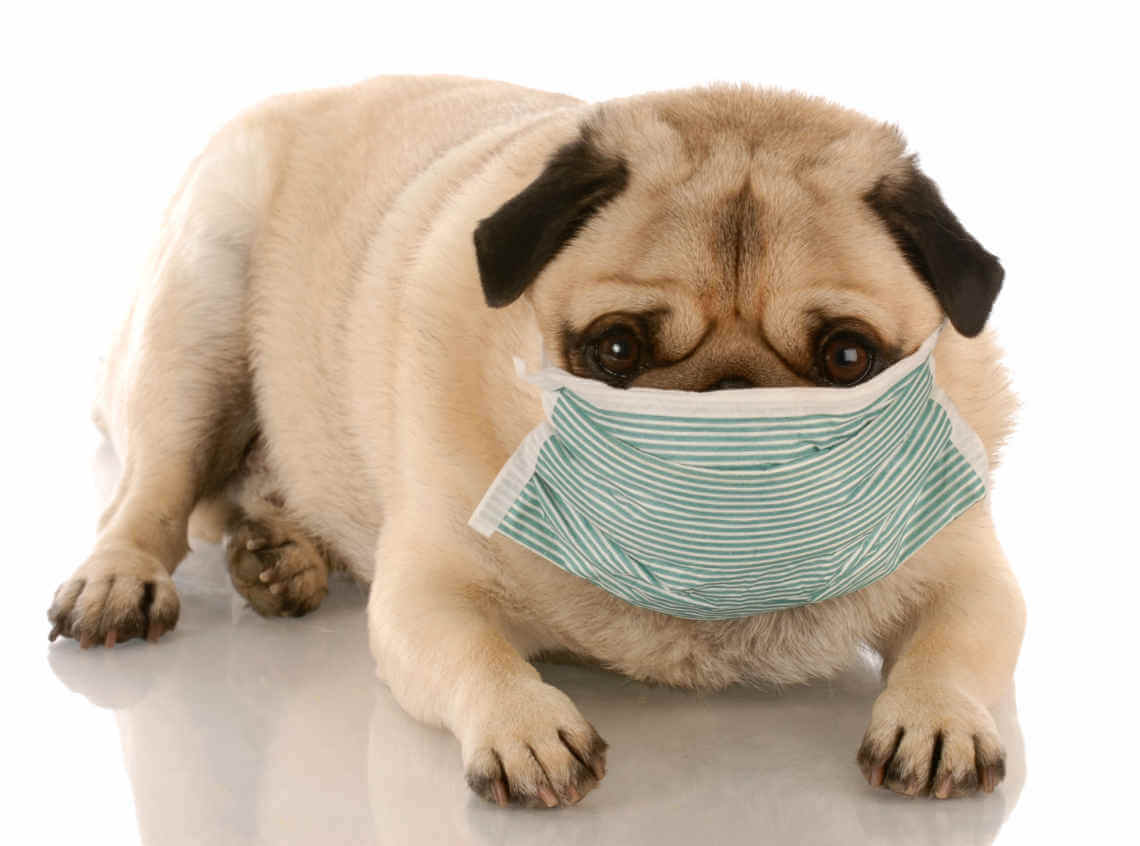
Dogs can suffer from allergies as often as people, but they don’t react to allergies in the same way, making it difficult to figure out what is going on.
For example, heavy pollen counts might cause humans’ eyes to itch and water, or cause sinus problems. But dogs might react to pollen by having itchy or swollen feet, causing them to bite or chew on their feet. Even though we might react to the same allergens, dogs’ reactions are usually not the same as ours.
Causes of Allergies in Dogs
Dogs can be allergic to many of the same substances that humans are. Rarely, a dog could even be allergic to cats or people.
There are basically four main types of allergies in dogs.
- Environmental (atopy) such as pollen in the air
- Food
- Fleas
- Contact (i.e. cats or humans)
Symptoms of Allergies in Dogs
Most of the time, allergies manifest as itchy skin or cause a “patchy” look in some parts of their body, especially soft skin areas like arm pits, between the toes, belly, anus, inside of ears, etc. This may cause their skin to be darker in color than normal, due to scratching and irritation.
The most common signs of allergies are:
- Itching
- Scratching
- Biting
- Chewing
Common Dog Allergies
-
Flea Allergy Dermatitis
This is the most common cause of allergies in dogs. The flea’s saliva is what triggers the allergy. Even one flea can make a dog miserable for weeks. The best response is to control fleas with a flea treatment (talk to you vet for the right one for your dog) and provide weekly baths to keep your dog clean.
-
Environmental Triggers and Atopy (Inhalants)
Dogs can be allergic to mold spores, dust mites and even certain fabrics. Cleaning chemicals, perfumes and other chemicals might be the culprit. Ragweed, grasses and other pollens can affect your dog, just like people. Dogs can be sensitive to cigarette smoke as well, so don’t smoke in your home. Feathers, materials made of rubber or plastic and even cockroaches can cause allergic reactions in dogs.
The best way to deal with these types of allergies is to make an appointment to have your dog tested by your veterinarian. That way, you will know what the offending substance is and you can try to reduce your pup’s exposure to it.
-
Food
The most common dog food allergies include:
- Beef
- Chicken
- Pork
- Lamb
- Corn
- Dairy
- Chicken Eggs
- Wheat
- Soy
It can be very difficult to determine the offending substance. Since an allergy can develop to virtually anything due to over-exposure, it is a good idea to occasionally change your dog’s diet. Feeding them the same thing all the time could be an invitation for a food allergy.
Are Certain Breeds More Susceptible to Allergies?
There are some breeds that tend to experience more allergies than other breeds. But also, there can be a genetic familial factor, just like in humans. The breeds that seem to be the most vulnerable to allergies include:
- Dalmations
- Irish Setters
- English Setters
- Retreivers
- Lhasa Apsos
- Scottish Terriers
- Mini-Schnauzers
- English Bulldogs
- Pugs
At What Age Do Dogs Develop Allergies?
Dogs can develop an allergy at any time, but most of the time they appear before the age of 3 years. Sometimes allergies can manifest when they are older, but that is not common.
Allergy Treatment in Dogs
Home remedies include regular bathing and probiotics, especially for puppies. Some dogs respond well to certain shampoos and fatty acid supplements to soothe excessive itching. Coconut oil added to your dog’s food can help control some of the symptoms.
The best way to diagnose allergies is to take your dog to the vet so you know for sure what you are dealing with.
Sometimes your vet will prescribe immune-modulating medications, and in very bad cases cortisone will be given to help manage symptoms. Sulfodene treatments can help with irritation, especially hot spots (areas on your dogs’ skin where they have licked the fur away) and medicated sprays can help with bacterial skin infections.
These are strong medications, so make sure you follow your vet’s prescriptions closely.
There really isn’t an easy answer to resolving allergies in dogs. Irritants can be caused by so many different sources it can be difficult to figure out what is triggering your dog. However, you can make a big difference in your dog’s comfort level by recognizing the signs of allergies and finding the best source of prevention and treatment possible.
Canine Campus offers top-quality grooming services, including regular bathing, which can help reduce your dog’s allergies and help them be less itchy and more comfortable. Contact us today to get your pooch in to receive the loving care of our certified groomer, Chris. Call us at 719-448-9600. Same day appointments possible depending on availability.













If you are worried about how often you should be bathing your dog, it s recommended that you speak with your vet for their advice. Use a hypoallergenic or oatmeal-based dog shampoo for best results, and remember to wash their bedding at the same time.
Agreed. Thanks for your comment Laken!